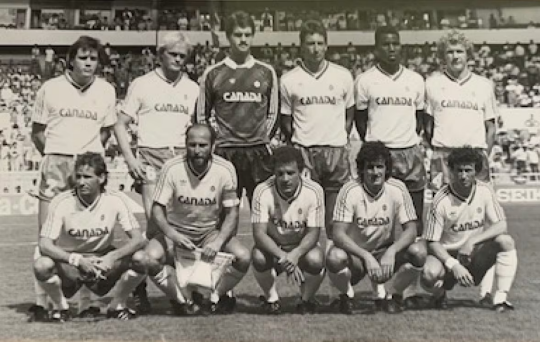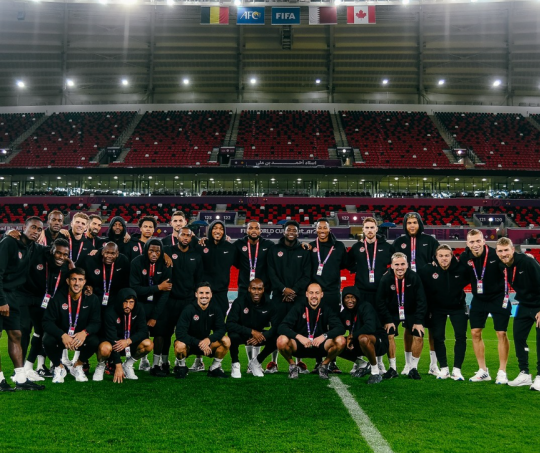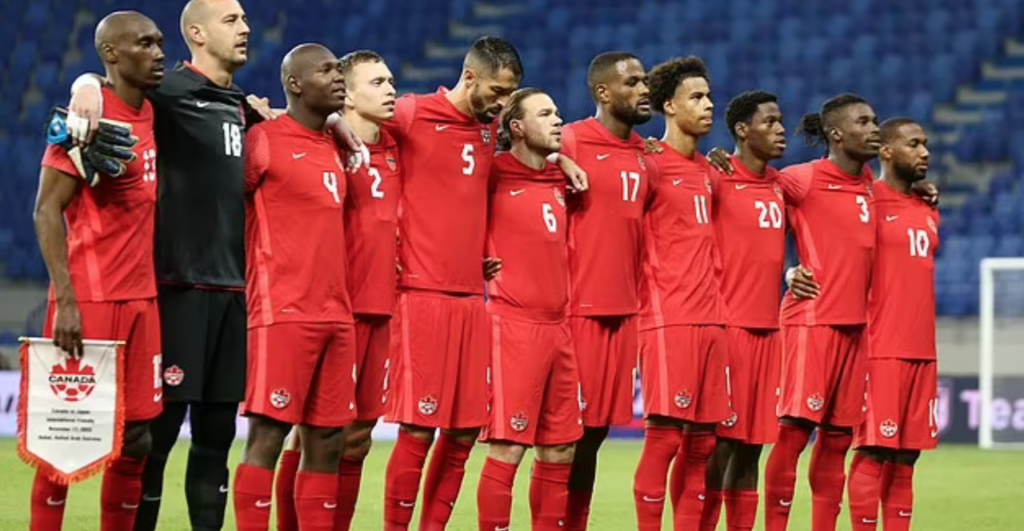Written by Jasleen Singh
In the heart of a nation known more for its icy landscapes and hockey dominance, a warm pulse of passion for soccer beats stronger than ever. Canada’s soccer scene is experiencing a meteoric rise captivating the hearts of fans and skeptics alike. Let’s explore how Canada is quickly becoming a formidable force on the global soccer stage.
Laying the foundations
Soccer, also known as football was introduced to Canada by English immigrants in the 1850s. The first football association outside of Britain, the Dominion Football Association was formed in Toronto in 1877. It later evolved into the Canada Soccer Association. After World War II the organization joined FIFA. In 1958, Canada had its first chance to qualify for the FIFA World Cup. They beat the USA but lost to Mexico and did not qualify. This attempt made Canadians excited about soccer and the CSA started working hard to promote the sport by setting up regional leagues. The 1966 FIFA World Cup was broadcast live in Canada leading to a surge in soccer’s popularity. This resulted in the setup of North American Soccer League with professional teams in major Canadian cities like Toronto, Vancouver, Montreal, Edmonton, and Calgary. Toronto and Vancouver were the teams that managed to win the league during its existence.
In 1977 and 1981, Canada made it to the Gold Cup but ended up in fourth place. Things changed in 1985 with a new competition format. Canada was grouped with Haiti and Guatemala and managed to beat everyone and move on to the final round. They tied two games against Costa Rica and won two against Honduras. This outstanding performance won Canada the Gold Cup for the first time. Winning the Gold Cup also meant they qualified for the World Cup for the first time. However, the FIFA World Cup 1986 was not a great success for Canada as they did not win a game or score any goals and finished last in their group.

Canada National Men’s Team at the 1986 World Cup in Mexico (Paul Dolan via Mikel Moore, CBC)
Navigating Challenges
After their Gold Cup victory in 1985, Canada encountered difficult times in soccer. In 1992, they lost their professional league, complicating matters for the national team. For many years Canada could not qualify for the World Cup missing eight consecutive tournaments. There were highlights, such as winning the Gold Cup in 2000 and finishing third in the following edition. However, Canada often struggled in the Gold Cup particularly in 2015. During that tournament they did not win a single game even though they co-hosted some matches with the US.
This period was challenging for Canadian soccer. Canadian clubs like Toronto FC, Vancouver Whitecaps, and Montreal Impact (now CF Montréal) performed well in the MLS in the late 2000s and early 2010s. Yet, the national team faced significant setbacks. A notable low point occurred in 2014 when Canada suffered an 8-1 defeat to Honduras in a crucial World Cup qualifying match. In 2015, they finished last in their Gold Cup group even losing to Martinique. Martinique is a small island and not a full FIFA member, highlighting the national team’s struggles.

Canada National Men’s Team at 2022 FIFA World Cup in Qatar (Instagram@canadasoccer)
The Herdman Era
Canadian soccer began to improve significantly after John Herdman was named the head coach in 2018. He had previously led Canada’s women’s team to success, earning Bronze medals in the 2012 and 2016 Olympics and reaching the Quarter Finals of the 2015 Women’s World Cup. His transition to managing the men’s team marked a turning point.
Under Herdman’s guidance the men’s team enjoyed a remarkable streak. They remained unbeaten in their first eleven World Cup qualifying matches. For the first time in over 20 years they defeated Mexico. This victory propelled them to the top of their qualifying group by the end of 2021. As a result, Canada moved into the top 40 in the FIFA world rankings. They were recognized as the year’s most improved team.
The team’s efforts culminated on March 27, 2022, when they secured their World Cup spot by defeating Jamaica. Winning this match was a historic achievement as Canada became the first team in their region to qualify for the World Cup that year.
The World Cup return
Canada returned to the global tournament after 36 years. The ascent was so rapid that Nike, their shirt manufacturer did not produce their World Cup shirts. They had not anticipated Canada’s qualification. Canada scored their first World Cup goals in a very tough group facing some of the best teams in the world like Morocco, Belgium and Croatia. Under John Herdman’s guidance the team showed resilience and skill. They captured the imagination of fans at home and around the world.

Alphonso Davies in action during a Copa America qualification match against Trinidad and Tobago (Instagram@alphonsodavies)
Looking to the future
Looking forward, the team is preparing for the Copa America 2024. Also, Canada will be one of the hosts for the 2026 World Cup alongside Mexico and the USA showing just how far Canadian soccer has come. From being relatively unknown in the soccer world, Canada is now recognized for its growing talents like Alphonso Davies, Jonathan David and Tajon Buchanan. Soccer is now a top sport for kids across Canada with over a million young players. This transformation shows that Canada has truly earned its spot on the global soccer map.
Sources:
https://www.thecanadianencyclopedia.ca/en/article/canada-at-the-2022-fifa-world-cup https://mtltimes.ca/sport/soccers-popularity-is-on-the-up-and-up-in-canada/ https://canadasoccer.com
https://www.cbc.ca/news/canada/newfoundland-labrador/canada-world-cup-1986-nl
Heart of Goal: The Rise of Canadian Soccer | Official Trailer | TLN Media Group (youtube.com)

